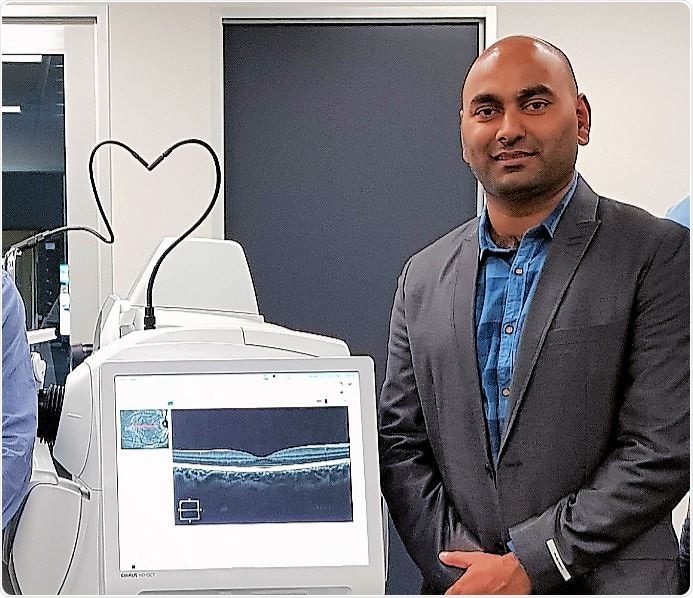People affected by short-sightedness are familiar with the frustration of only being able to clearly see objects up close, but not a far distance.

Image Credit: Flinders University
Now new research from Flinders University indicates people with the common condition – known as myopia – are more likely to experience poorer sleep quality than people with normal vision.
The study, led by optometrist Dr Ranjay Chakraborty from the Flinders Caring Futures Institute, indicates that people with short-sightedness have more delayed circadian rhythms and lower production of melatonin, a hormone secreted in the brain and responsible for regulating sleep at night, compared to people with normal vision.
The findings, published in the journal Sleep, show that the participants with myopia take longer to fall asleep, sleep for shorter periods of time at night and are more likely to go to bed later or be ‘night owls’ compared to those with normal sight.
These sleeping habits were related to people with myopia spending more time on computers and other digital devices or studying before going to bed.
Dr Chakraborty says the study adds to the growing evidence of the potential association between disruption of the circadian rhythm and the development of myopia.
Disruptions in circadian rhythms and sleep due to the advent of artificial light and the use of light-emitting electronic devices for reading and entertainment has become a recognized health concern in several fields, but its impact on eye health has not been studied extensively. These findings provide important evidence that optimal sleep and circadian rhythms are not only essential for general health, but also for good vision.”
Dr Ranjay Chakraborty, Optometrist, Flinders Caring Futures Institute
In the study, conducted in collaboration with the Flinders University Sleep Institute, the circadian timing and production of melatonin was measured in both people with myopia and people with normal sight. All participants were university students, aged in their twenties.
Melatonin is a hormone secreted by brain’s pineal gland to maintain the body’s sleep-wake cycle and circadian rhythms. We produce melatonin soon after the onset of darkness, peaking our secretion between 2–4am.
Dr Chakraborty says the levels of melatonin were measured in participants through saliva and urine samples, and that the young adults with myopia had significantly delayed circadian rhythms and lower outputs of melatonin compared to normal sighted participants.
Source:
Journal reference:
Chakraborty, R., et al. (2021) Myopia, or near-sightedness, is associated with delayed melatonin circadian timing and lower melatonin output in young adult humans. Sleep. doi.org/10.1093/sleep/zsaa208.